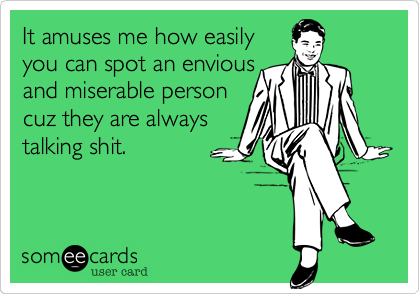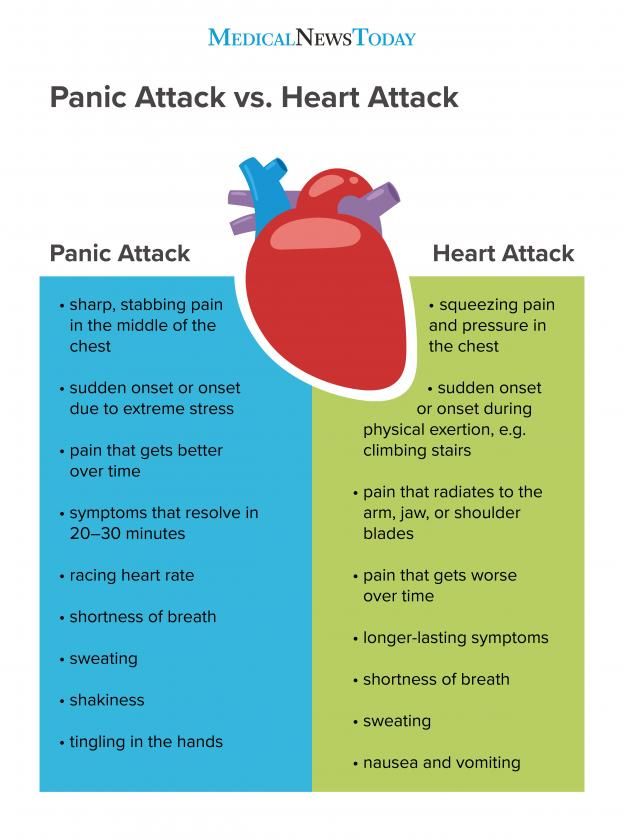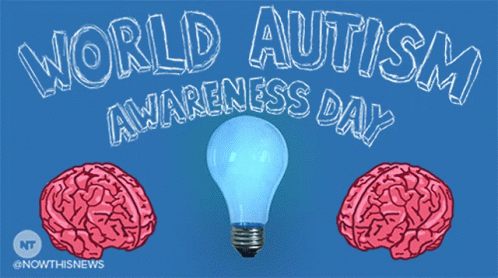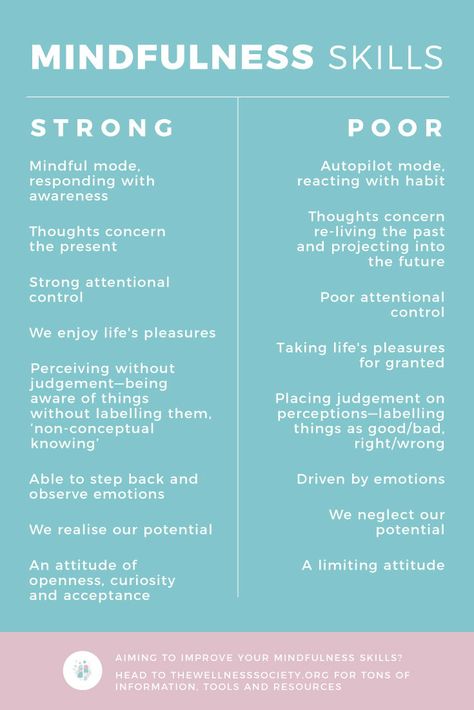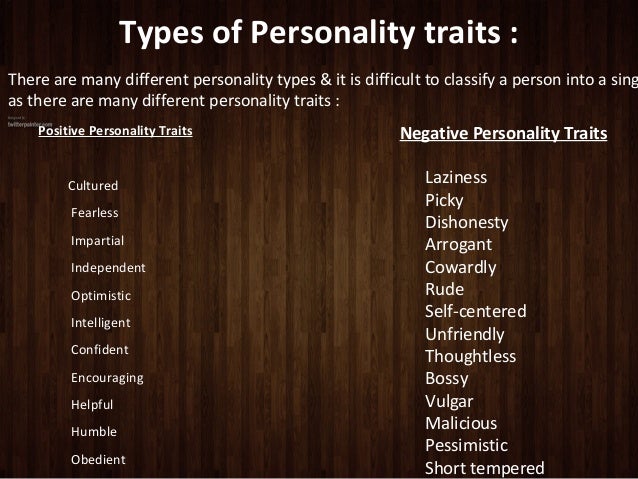What to do when you are left out
10 Ways to Cope with Feeling Left Out
It doesn’t feel very good to be excluded from things.
Say two of your friends mention another friend’s upcoming barbecue (one you didn’t get an invite to) or co-workers regularly fail to invite you to lunch or happy hour.
Best-case scenario, they simply forgot. But it’s hard not to wonder if they intentionally left you out. Focusing on this possibility can lead to a range of uncomfortable feels, from sadness and anger to downright confusion.
Everyone experiences social rejection or exclusion at some point in life, but the following tips can help you maintain a balanced perspective and soothe the sting.
It’s normal to feel upset when others exclude you, even if they didn’t do it on purpose.
You might feel annoyed when co-workers get coffee every morning and never ask you to join, lonely after finding out your friends have a group chat without you, or hurt when your sister chooses not to include you in her wedding party.
No matter the situation, you’ll likely experience a complex mix of emotions. Taking time to unpack these feelings can help you process them and decide what to do next.
To get started, you might try:
- journaling
- grounding exercises
- deep breathing
- a calming walk
Remember, no matter what emotions come up, they’re completely valid. Avoid trying to deny them or hold them back, since this is more likely to intensify them than make them go away.
You feel hurt no one told you about your friend’s impromptu get-together. What you don’t know, however, is that your recent ex (a mutual friend) showed up before your friend had a chance to invite you. Your friend, knowing you’re not entirely over the breakup, simply wanted to avoid causing you more pain.
If you tend to jump to worst-case scenarios, you’re not alone. This thought pattern is common, but it’s not very helpful. This kind of emotional tension can increase anxiety and make it even harder to consider reasonable explanations.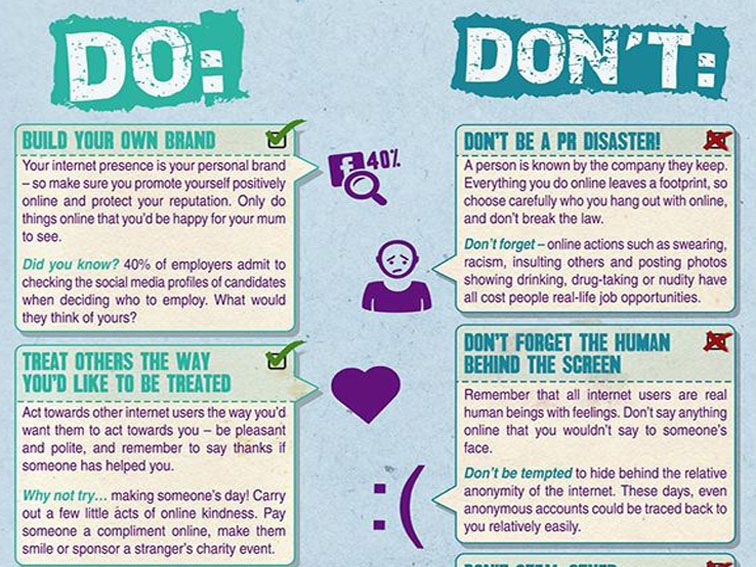
Instead of letting fear run rampant, stick to logical thinking by looking at the actual evidence.
If you believe your friends no longer care about you, ask yourself if you have any proof supporting that conclusion. Then, consider whether you have proof that they do care. If you end up with more evidence suggesting they really do care, there’s most likely another explanation for what happened.
Even if you’ve truly been excluded, it might not be for the reasons you believe.
When you notice a pattern of people excluding you, it may be worth considering whether your actions might be playing a role.
If you want others to include you in social activities, ask yourself if you’re clearly conveying this desire through your body language and behavior — or saying something totally different.
Maybe you have a habit of crossing your arms during conversations. There’s nothing inherently wrong with this, of course, but it can make you seem closed off, even if you don’t intend to give this impression.
Or, maybe you get very absorbed in activities and lose track of things happening around you, such as friends making plans for a party. You don’t respond or offer anything to the conversation, so they assume you don’t have any interest.
Ask yourself
- Do you tend toward shyness? Others may want to give you space by waiting for you to make the first move.
- Do you try to make conversation and include others?
- Do you have a short temper when others make mistakes?
- Do you use rude or offensive language or bring up heavy or distressing topics? It’s not always a bad thing to discuss serious issues, but this can put some people off, especially if you aren’t close.
It’s pretty difficult to know how you come across to others, so if you’re at a loss, a trusted loved one might be able to offer some honest guidance.
Having only your side of the story can limit your perspective.
When you feel left out, talking to others involved can help you understand what happened.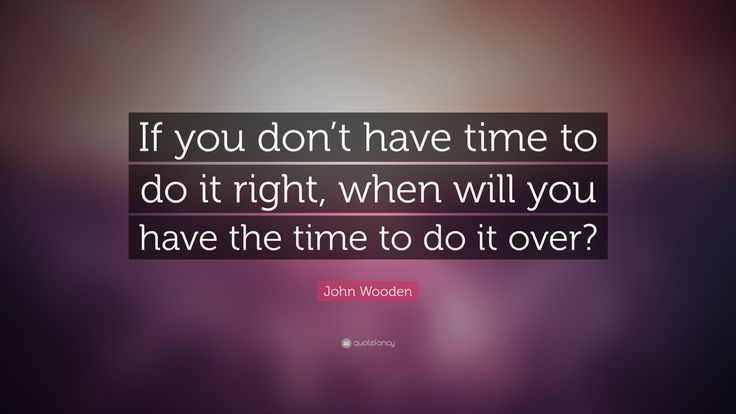 It’s typically better to talk things over than worry about what other people might think or feel.
It’s typically better to talk things over than worry about what other people might think or feel.
Explain why you felt left out using “I” statements, or things that focus on your experience and prevent others from feeling accused.
Be sure to mention specific instances and avoid generalizations.
- Instead of: “You always leave me out! No one ever invites me to anything.”
- Try: “The Zoom movie parties I keep hearing about sound really fun. I feel a little left out because I haven’t been invited to any of them. Is there some reason why? I’d like to join next time, if that’s all right.”
If you feel like you don’t fit in at work or school, and friends often forget (or “forget”) to invite you to events, you might start wondering why no one wants to spend time with you.
Believing you don’t belong can contribute to a loss of confidence and self-esteem. This can happen whether you’ve been left out for the first time or experience social rejection on a more regular basis.
Affirmations and positive self-talk can help restore your faith in yourself:
- “My friends and I have a good relationship, and they always say how caring I am. They wouldn’t drop me for no reason.”
- “I have a great sense of humor.”
- “People have always enjoyed spending time with me before, and they will again.”
Plus, feeling more confident can empower you to try connecting with others instead of waiting for an invitation.
You might not always get a satisfying explanation after being excluded. Sometimes, you just have to accept the possibility that others really did exclude you, perhaps intentionally. That’s on them. It doesn’t mean you did anything wrong.
Say you tell your co-workers you’d love to join them for lunch. They agree, but the next day you notice them leaving without asking you along.
Understandably, you feel hurt and angry. But don’t let that ruin your day. Instead, ask a different co-worker to lunch, or grab takeout from your favorite restaurant and picnic outdoors with a book.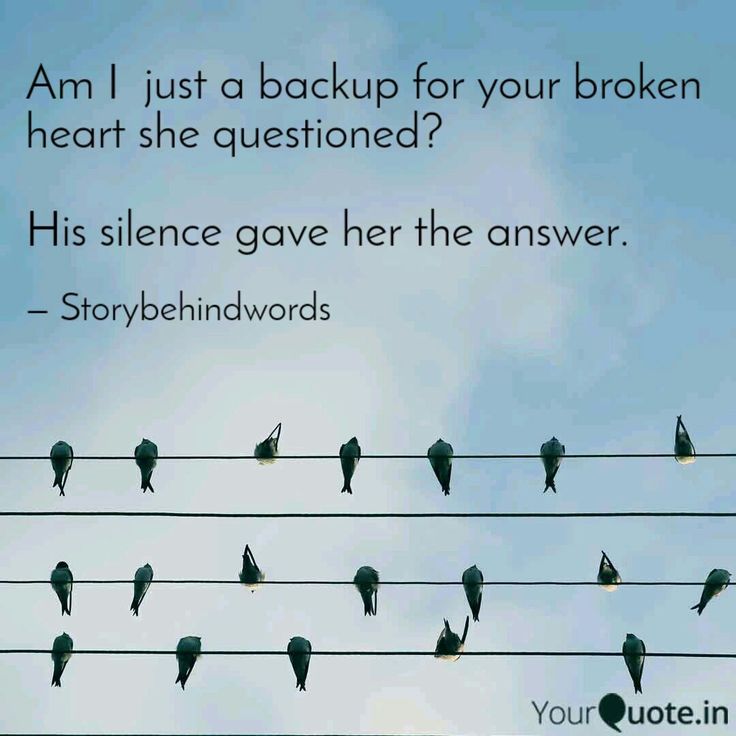
Next time you’re not invited to a group hangout, use the evening for your favorite self-care activity:
- take a long bath
- watch a favorite movie
- catch up with loved ones on the phone
- cook a fancy meal
Do you get the feeling people exclude you more often than they include you? Your past participation in events might offer a potential reason.
If you frequently turn down invitations, people could assume you aren’t interested and stop inviting you.
Remedying this is often as simple as sending a quick message along the lines of:
- “I know I’ve been busy lately, but I’ve got plenty of free time now! Do you have time to catch up next week?”
Also consider that people may leave you out of events they believe you won’t enjoy. If you prefer not to socialize in large groups, for example, friends who know this probably won’t invite you to their latest shindig.
You might need to make the first move if they don’t know what type of interaction you prefer, so invite them to a movie night or other quiet get-together.
When you feel rejected, talking to someone you trust can help. They may not have any solutions, but getting things off your chest can be therapeutic.
They can also help point out possible explanations you might not have considered. At the very least, their presence can remind you of the people in your life who do want your company.
If your existing relationships don’t provide the companionship and emotional support you need, it may be time to consider forming new friendships.
People change over time, and new interests and relationships often accompany these changes. People might still care but lack time or space to devote to your friendship, for some reason or other. This can be difficult to accept, but you can’t do much to change it beyond letting your friends know you’re available when they are.
In the meantime, you can avoid loneliness by forging connections with people at work or in your community who share your interests.
Ongoing loneliness and experiences of social rejection can take a toll on your mental health.
If you’re struggling to deal with being left out, a therapist can help you:
- explore new approaches to communication
- challenge negative thought patterns
- address mental health symptoms related to loneliness
- learn to reframe thoughts of unworthiness or self-criticism
Our guide to affordable therapy options can help you get started.
People generally want to feel like they belong, so it can feel pretty rotten when those who matter most ignore you.
But remember this: They’re the ones missing out on your friendship. You get to decide how you spend your time. You can choose to spend it with people who show their interest in your company, instead of waiting around for people who don’t seem to care.
Crystal Raypole has previously worked as a writer and editor for GoodTherapy. Her fields of interest include Asian languages and literature, Japanese translation, cooking, natural sciences, sex positivity, and mental health. In particular, she’s committed to helping decrease stigma around mental health issues.
In particular, she’s committed to helping decrease stigma around mental health issues.
Feeling Left Out By Your Friends? 9 Tips to Overcome It
Everyone has felt socially excluded at some point in their life. It can be lonely and painful. There is a reason for this: Being left out can trigger a primal neurological fear of rejection.
When you’re feeling left out by friends, it’s easy to get in your head about why they haven’t included you. You may even cascade into an emotional drama of distress, insecurity, and self-doubt.
Luckily, there are a few ways to stay grounded and soothe the pain of being excluded from the group. Here’s how to deal with being left out by friends.
Why Wanting to Be Included is Normal
Humans have an evolutionary need for belonging. Since the earliest Homo sapiens, people have lived as herd animals, reliant on their tribes to protect them from danger.
Contrary to the rugged individualistic assertion that “other people’s opinions don’t matter” or “it’s me against the world,” it is completely normal to want to be in a group.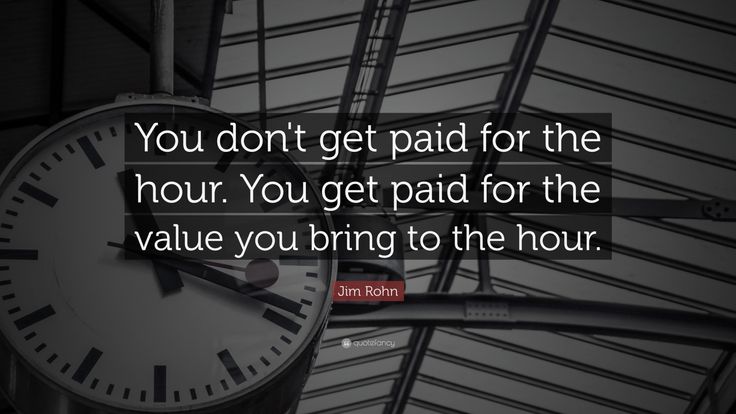
Of course, it’s not healthy to morph yourself or pretend to be someone you’re not just for fitting in. But trying to convince yourself that you can get by without social acceptance can sometimes do more harm than good.
The “Need to Belong” theory asserts that humans absolutely need a social connection to survive. Although many avoidantly attached people may claim to be fine without intimate relationships, friendships are scientifically proven to benefit your life in profound ways:
- Quality friends improve your health.
- Friendships are the number one indicator of joy and happiness.
- Social connections link to longevity.
- Sociability reduces your risk of sickness.
- Friendship strengthens your self-esteem.
There is nothing wrong with wanting to be included.
Action Tip: Take the Attachment Style Quiz to uncover how childhood experiences might have shaped your approach to interpersonal relationships as an adult.
↑ Table of Contents ↑
Are you being excluded from your friend groups? Not everyone is straightforward about whether or not they want you around.
If you notice these subtle signals from your friends, they may be leaving you out:
- They leave quickly without telling you where they are going
- They cancel plans with you last minute
- They don’t invite you to their parties or events
- They ignore your text messages or don’t return your calls
- They say they’re busy, then post photos on social media or hang out with other people
- They avoid discussing a certain event or topic with you
- They tell white lies about what they were up to the past weekend
- They provide vague answers like “I’m busy” or “oh, nothing much.”
- They have the same excuse every time you want to hang out
↑ Table of Contents ↑
What to Do When You Feel Left Out
When you feel like you’re on the outside looking in, sometimes your mind can go to dark places. Social exclusion hurts, but there are a few things you can do to manage your emotions and soften the sting.
Social exclusion hurts, but there are a few things you can do to manage your emotions and soften the sting.
#1 Avoid catastrophizing
The psychological phenomenon of catastrophizing explains why people often fabricate situations in their heads that exaggerate the negative parts of a painful experience like rejection.
Though you may be trying to make sense of your emotions, anxiety and worrisome thoughts can actually lead to more emotional distress.
When you feel left out, it’s important not to think yourself into a black hole of “what ifs” and “whys.” The truth is that you never know what is actually happening in people’s lives.
First, consider that your friends may not be purposefully rejecting you. For example, if your colleagues ended up grabbing a drink after work without you, maybe the decision was spontaneous as they were walking out of the office. They may not have intentionally made plans ahead of time that excluded you.
In other instances, a certain group of people may have forgone inviting you simply because they knew you wouldn’t be interested in the discussion topics or the location they were meeting up:
- If you’re a vegan and your friends are going to a steakhouse, they likely didn’t want to make you feel uncomfortable by bringing you along.

- If a couple of friends are meeting up to have a playdate with their kids or dogs, maybe they didn’t invite you because you don’t have any kids or dogs.
- If you know that your friends went out for coffee and yoga on Saturday without inviting you, they may have planned it ahead of time, thinking you were busy or uninterested in yoga.
It’s easy to spiral into thinking “they don’t like me,” “I’m not good enough,” or “they think I’m a weirdo,” but these catastrophic thoughts can be very unproductive for your emotional state.
Reading too far into a situation doesn’t do anyone any good. Avoid making assumptions about your friends’ motives.
They didn’t necessarily leave you out because they don’t like you; maybe the situation just arose spontaneously, or they thought you wouldn’t enjoy it anyway.
↑ Table of Contents ↑
Studies show that heavy social media use is associated with loneliness. In a world bombarded by the “highlight reel” of other people’s lives, social media can often make you feel like you’re being left out from all the fun others are having.
Looking at photos of your friends enjoying themselves can elicit feelings of jealousy, rejection, and FOMO.
If you can discipline yourself to delete a few apps or turn off your phone for a while, you may find that being present in your current reality can bring you more fulfillment than scrolling through other people’s lives.
Action Tip: When you’re feeling left out of social gatherings, avoid looking at social media for a few days to a week. Delete Instagram, TikTok, Twitter, Facebook, and any other apps you regularly use (don’t worry, your account will still be there when you want to log back in). Instead of checking social media, try to meet people in your city or learn to be more creative.
↑ Table of Contents ↑
#3 Distract yourself with new interests
Distracting yourself can be one of the simplest ways to deal with feeling left out.
Instead of ruminating about what you did wrong or if your friends still like you, you can reframe the experience into something positive. What if being excluded was a blessing in disguise? If you repeatedly hang out with the same people and do the same things, you may not be getting out of your comfort zone as often as you’d like.
What if being excluded was a blessing in disguise? If you repeatedly hang out with the same people and do the same things, you may not be getting out of your comfort zone as often as you’d like.
An open night or weekend gives you time to de-stress, relax, and try out new interests that you wouldn’t otherwise explore:
- Revisit a childhood passion
- Get lost in someone else’s life for a little while with a fascinating novel or movie
- Attend a class to learn something new
- Treat yourself to a self-care day
- Take a road trip to a nearby city
- Try out one of these 40 Unique Things to Do When You’re Bored
The world is a big place full of new people to meet and rich experiences. Get out there and try something new to remedy the FOMO (fear of missing out) blues. You’ll have something new to talk about and maybe even make new friends.
Action Tip: Research shows that social rejection can actually fuel creativity.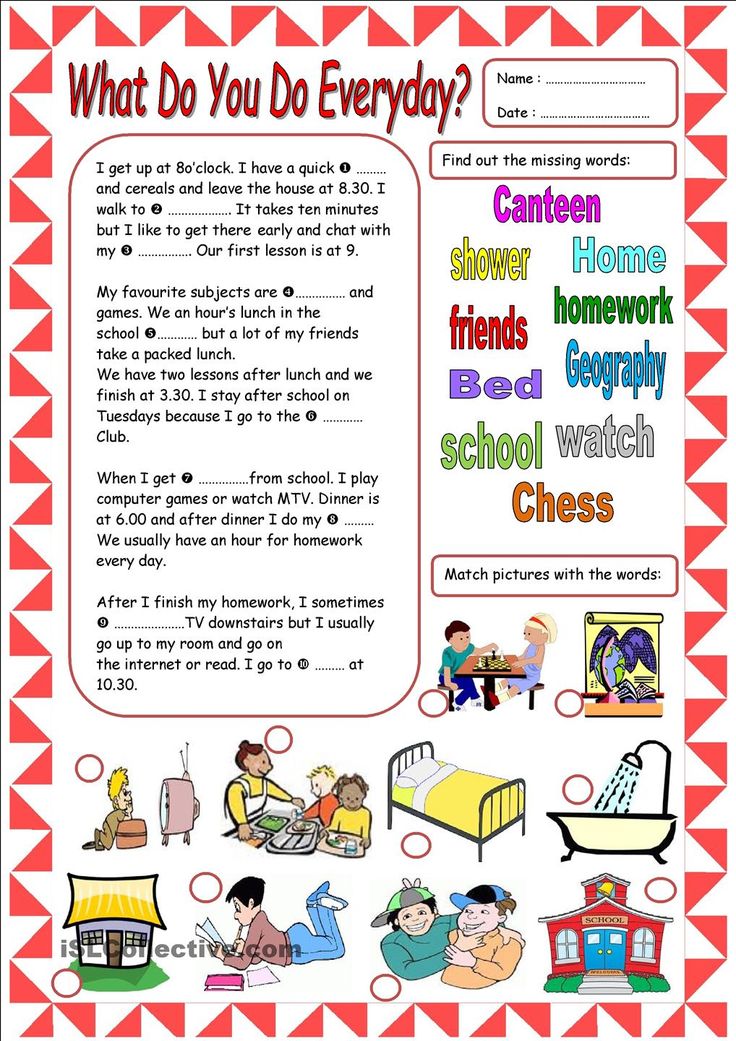 Try channeling your negative emotions into a creative project such as journaling, drawing, writing, carpentry, or music.
Try channeling your negative emotions into a creative project such as journaling, drawing, writing, carpentry, or music.
↑ Table of Contents ↑
#4 Feel your emotions, don’t suppress them
Studies show that suppressing emotions can lead to more negative mental health outcomes than facing them head-on.
It’s no surprise that being excluded from social situations can lead to feelings of rejection as psychologically difficult as physical pain. Frankly, it sucks.
If your cousin doesn’t include you in her wedding party or your friends host a get-together without you, it’s OK to be upset about it.
Instead of suppressing your emotions, try taking time to process and unpack what you’re feeling:
- Journal about your thoughts: What hurts most about this situation? Does it remind you of an experience of rejection?
- Practice deep breathing or a guided meditation: Grounding yourself in your breath can help bring the focus away from the external world back into your inner self.
 Try this 10-minute meditation for dealing with rejection.
Try this 10-minute meditation for dealing with rejection. - Take a walk: Notice the small details like shapes of clouds, bird songs, or flowers that are currently blooming.
- Listen to music: Music is scientifically proven to reduce stress and improve your mood.
- Try exercise or yoga: Getting your sweat on can help you channel your emotion into a physical challenge.
- Talk to another trusted friend or family member: Ask someone close to you for a few minutes of their time to allow you to vent and talk through why you feel left out. Be sure to clearly express if you want advice, a pep talk, or just a metaphorical “shoulder to cry on.”
- Create an emotion map: An emotion map helps you build a vocabulary to describe your emotions and responses.
Emotion Map Exercise: The Dalai Lama and Dr. Paul Ekman worked together to create an online tool called the Atlas of Emotions to illuminate your emotional experience and help you navigate through different feelings.
↑ Table of Contents ↑
#5 Take yourself out on a date
Spending time alone is correlated with greater confidence, more creativity, higher emotional intelligence, and greater emotional stability in challenging situations.
If you feel left out, it might help to turn inward and focus on your self-love, reflection, and fun experiences you can have on your own. A really fun way to do this is by taking yourself on a date:
- Get dressed up in your favorite outfit
- Choose one of your favorite restaurants or try a new cuisine
- Bring along a good book, podcast, journal, or sketchbook if you want to do something creative while you eat
- Celebrate a few things you love about yourself while you enjoy the delicious meal
- People-watch or strike up conversations with the wait staff
This video explains a simple three-step solution to overcome your fear of being alone:
Action Tip: A fear of being alone can be a common cause of clingy or attached behaviors. If you think you might be acting a little clingy with your friends, read our article on How to Not Be Clingy: 9 Ways to End Neediness in Relationships
If you think you might be acting a little clingy with your friends, read our article on How to Not Be Clingy: 9 Ways to End Neediness in Relationships
↑ Table of Contents ↑
#6 Check that you clearly expressed your availability
Often getting left out can result from simple miscommunications:
- Maybe your friends thought you were too busy with your job to go shopping on a weekday.
- Perhaps you accidentally texted them the wrong date or time for an event, and they planned something else without you.
- Maybe you just forgot to confirm a clear “yes” or “no” to an invite.
Action Tip: To avoid being left out, make sure you are clearly communicating when you have free time to hang out. Better yet, create your plans and invite them. Send your friends a quick text on a group chat about an open window of time that you’d like to make plans for.
↑ Table of Contents ↑
#7 Openly communicate how you feel
Honest and clear communication is the key to any successful relationship. While it may feel awkward, sometimes the best way to deal with being left out is to express how you feel openly.
While it may feel awkward, sometimes the best way to deal with being left out is to express how you feel openly.
Psychologist and researcher Brene Brown asserts that vulnerability is essential to deepening relationships, so don’t be afraid to open up a bit of your true emotions.
“Staying vulnerable is a risk we have to take if we want to experience connection.” – Brené Brown
When communicating that you’ve been feeling excluded, it’s best to avoid sounding accusatory or attacking:
- “You should have invited me.”
- “I thought you cared about me, but you keep leaving me out.”
- “You keep ignoring me.”
- “I invite you to places all the time, but you never invite me.”
Instead, focus on “I” statements that express your experience without projecting your insecurities onto the other person:
- “Honestly, I felt a little left out when you and the girls went out to dinner last weekend without me.”
- “I’ve been feeling a bit more distant in our friendship lately.
 Just wanted to check in to see if you’re doing OK.”
Just wanted to check in to see if you’re doing OK.” - “I miss hanging out with you. Do you want to meet up soon?”
- “Sometimes I feel excluded from the family when you do things without me.”
- “I noticed that we aren’t hanging out as much anymore. Have I done anything to upset or annoy you?”
Action Tip: Sometimes, people may exclude you from situations because they feel annoyed by you or awkward in your presence. It may help to do some self-reflection and work on your social skills so that you don’t come across as annoying. This article might help: This is Why People Find You Annoying (& How to Fix It!)
↑ Table of Contents ↑
#8 Invite people to do things with you
If no one invited you to the party, have your own! Instead of waiting on others to invite you to social events, create your own sense of belonging by making plans and inviting them.
The most popular people are known for acting as the “social glue” of their friend circles. They bring people together by…
They bring people together by…
- Hosting events
- Initiating plans
- Introducing their friends to each other
- Inviting people to hang out
Next thing you know, people might be asking you if they can tag along with your plans.
Pro Tip: Magnetizing a circle of friends comes down to improving your people skills and becoming more likable. If you want to be more popular, try these 16 Science-Backed Tips to Attract Friends.
↑ Table of Contents ↑
#9 Meet new friends
Friends who regularly leave you out of their plans may not be the best friends to have. If you start to notice signs that your friends are toxic or you have a lot of fake friendships, try redirecting your energy into more fulfilling new relationships.
Making new friends may seem intimidating at first, but there are actually more ways to meet people than ever before:
- Regularly go out to local cafes, restaurants, bars, or concerts
- Minimize using your phone in public so you can have more conversations
- Try a friendship app to connect with likeminded people online
- Learn some killer conversation starters to initiate interesting connections
- Join a class or group to learn a new skill
- Use one of these 50 Ways to Meet New People in ANY City
↑ Table of Contents ↑
Key Takeaways: How to Deal With Being Left Out
Being left out can trigger the most vulnerable and painful insecurities from childhood. But sometimes, your emotional reaction to social rejection can make things harder than they need to be.
But sometimes, your emotional reaction to social rejection can make things harder than they need to be.
To deal with being left out of a social situation, try practicing healthy ways of coping and moving forward:
- Avoid catastrophizing and excessively worrying or wondering why your friends left you out. Instead, give your friends the benefit of the doubt and
- Take a break from social media to avoid feeling FOMO when looking at photos of your friends. Temporarily delete your primary social apps and use these tips for a 10-day digital detox.
- Distract yourself by getting creative or trying out new hobbies. Get absorbed in someone else’s life for a while through a novel, movie, or asking people about themselves.
- Work through your emotions rather than suppressing them; try journaling, meditating, or talking with a trusted friend or family member.
- Take yourself on a date to your favorite restaurant.
- Openly communicate how you feel.
 Sometimes being vulnerable with your friends can help deepen your friendship and correct any miscommunications.
Sometimes being vulnerable with your friends can help deepen your friendship and correct any miscommunications. - Create your plans and invite other people to come along. Instead of ruminating over friends who left you out of their plans, you can forge new social connections by asking acquaintances to join you for a movie, drink, class, or concert.
Wanting to belong is completely natural and even essential to survival. You deserve friends who make you feel like a part of the group, but you can’t always control how other people treat you.
You can, however, become more confident in yourself so that you don’t feel so sensitive to rejection. Learn How to Build Rock-Solid Self-Esteem in 8 Weeks (or Less!) to feel more empowered to love who you are regardless of the social situation.
I want everyone to leave me alone and not touch me
Requests for helpWrite your story
Hello! ...I wanted to write here for a long time, but having calmed down, I abandoned this idea, and today, I feel, the limit has come to everything that happens. I no longer know where to look for a way out and how to end the nightmare that life has become. I do not understand who is right and who is not. I blame only myself for everything: for all problems, for all conflicts. It has already gotten to the point that I periodically hit myself in the face - I hate my being so much. More and more I'm afraid to be alone with myself. I'm afraid that even now it seems to me that suicide is something not related to me, but if I cross some unknown line, the worst will happen.
I no longer know where to look for a way out and how to end the nightmare that life has become. I do not understand who is right and who is not. I blame only myself for everything: for all problems, for all conflicts. It has already gotten to the point that I periodically hit myself in the face - I hate my being so much. More and more I'm afraid to be alone with myself. I'm afraid that even now it seems to me that suicide is something not related to me, but if I cross some unknown line, the worst will happen.
I'll try to sort it all out. It's a very long time to write, but maybe someone can help with advice ... I'm 27 years old ...
The most difficult and most disturbing thing is the relationship within the parental home. There have always been conflicts here. Dad is extremely hot-tempered; I slept constantly, as far as I can remember - a heavy person, and my mother always endured, although she constantly complained to me about her difficult fate. I always stood up for her and she always made me the last one.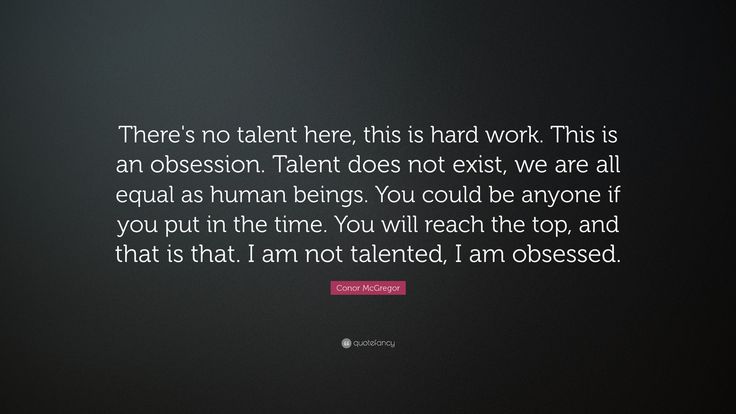 I can't help myself. When my mother is insulted, I can't control myself. In recent years, conflicts have become more frequent and crazier. Parents are almost 60. Father constantly began to threaten to leave, began to threaten with divorce and the fact that we would all go around the world without him, etc., etc. But my mother's main headache was and is her brother. Everything else does not bother her and she is ready to endure any humiliation, so long as her brother is not deprived of any benefits.
I can't help myself. When my mother is insulted, I can't control myself. In recent years, conflicts have become more frequent and crazier. Parents are almost 60. Father constantly began to threaten to leave, began to threaten with divorce and the fact that we would all go around the world without him, etc., etc. But my mother's main headache was and is her brother. Everything else does not bother her and she is ready to endure any humiliation, so long as her brother is not deprived of any benefits.
Brother is 25 years old. After graduation, it turned out that he did not need a diploma, because he realized that he studied in the wrong specialty. He never worked, he sat at the computer at night, hanging out in computer games, and slept off during the day until the evening. Over time, he became aggressive: it was worth hiding the wires from the computer, he could easily start to fight and yell with a good obscenity. Even at the "institute" stage, his parents bought him an expensive car, in the hope that at least the thought that the car needed to be supported for something would make him take his head. The hope was not justified. The car hung on the parents: both the payment for maintenance and the payment of the loan.
The hope was not justified. The car hung on the parents: both the payment for maintenance and the payment of the loan.
I remember how my mother found an advertisement looking for assistants at the exhibition and sent my brother there. For a whole week I watched a mind-blowing picture. He woke up at 8 in the morning, his mother was already fluttering with breakfast and, with a sinking heart, she trembled how hard it was for her child and that she could only endure a week, and then he would be able to sleep and continue to do his own thing.
Well, she constantly complained to me that no one was looking after her brother and that there was no government for him. As soon as I advised her, simply, to put him before the fact, like now he is an adult and must work - she immediately became enemy number one. Immediately after my words, there were phrases that I am a selfish, ungrateful creature who is so envious of his brother that he allows himself to teach his mother how to raise her son. Further, simply, she could not communicate with me for days - weeks.
Further, simply, she could not communicate with me for days - weeks.
It all seemed like one big absurdity. I was offended, and then, indeed, I blamed myself for my words. Although my mother drove me to work already from the second year, saying that “Mary Petrovna’s daughter already gave her mother a fur coat” or “Aunt Olya’s daughter paid her mother a ticket to Egypt”, etc., and I am an ungrateful daughter sitting with my parents on neck. And I worked. First, where 3 through 2, and then my mother said that my work is not prestigious and that all the normal daughters of her friends work in offices. I got a job in the office for a five-day job, trying to combine full-time studies. I still don’t understand how it turned out, but I skipped the institute.
As a result, it all ended with the fact that I left my parents at the first opportunity. She went to live with a young man. Three years later, we broke up (a separate story), my mother insisted on returning to them. She assured me that I would be calmer with them and would not have to spend money on rented housing. I came back. For the first two months, everything was really calm, but closer to spring, hell began. The same hell I ran from.
I came back. For the first two months, everything was really calm, but closer to spring, hell began. The same hell I ran from.
My brother was drafted into the army in the fall, and now every weekend one of us had to go to visit him. He certainly changed in character. He became interested in family life, matured, began to think about work when he returned to civilian life. The service is beneficial. But the mother does not get tired of worrying and constantly says that they sent him there in vain, that it’s hard for him there: outfits, patrols, and so on.
The father was completely mad: scandals out of the blue, he brought a woman on the side. It is worth asking him to go to his brother - swearing with selective obscenities begins. Curses everyone and everything. Going to him, and he pronounces his dirty monologue. Today I couldn't resist. Kicked him out of the house. She said that if she wants to leave, let her go. And, as the denouement of everything: my mother calls and says that I should not call her mother anymore and would look for housing for myself; in addition, she asked me not to tell my brother anything, so as not to disturb him with these problems.
Well, we broke up with a young man after three years of marriage. They lived in a hostel, huddled in one of his rooms. I worked, he worked. At first everything was fine, a year later - the first betrayal. Separated. He returned a month later. I forgave. Only for some reason now the whole life hung on me. She bought food herself, cooked for us herself, cleaned herself (both for the neighbors and our room). She made repairs with her own money - only the furniture was bought in half. And after a while I began to notice that he and I live different lives. Or rather, all my time was devoted to him and his time was devoted to him. There was even a moment when he brought his ex to our house to spend the night under the pretext that they were only friends. I remember now and think - what a fool. He never gave gifts, only if you ask before the holidays, and so as a surprise - no. For me it was not the most important thing. I loved him and accepted him the way he was. I liked taking care of him, I liked making surprises for him myself, and I closed my eyes to any household trifles. Well, after a couple of years there was a second betrayal. This time they parted ways. It was very difficult to part. It’s hard because it’s already the age when you want a family, marriage, children, and now everything is from scratch ...
Well, after a couple of years there was a second betrayal. This time they parted ways. It was very difficult to part. It’s hard because it’s already the age when you want a family, marriage, children, and now everything is from scratch ...
Total loneliness. The parents' family is a complete collapse, there is no personal life. And I have no more strength ... I feel like a complete insignificance. Constantly on the nerves, everything around is annoying - people, situations, requests. I want everyone to leave me alone and not touch me. It seems that in three years she lived a 50-year life. So many mistakes have been made. I sit and roar... I constantly feel sick and my head is splitting from these tantrums...
Lonely, age: 27 / 05/01/2016
Responses:
Hello! Honey, only those who do nothing do not make mistakes. You are still young, beautiful, there are many chances to meet a worthy person. Don't be discouraged! Happiness to you!
You are still young, beautiful, there are many chances to meet a worthy person. Don't be discouraged! Happiness to you!
Irina, age: 05/28/2016
Hello! Well, you're not responsible for your parents' family. If you cannot change their relationship, then you can just leave it all and live your life. Maybe rent an apartment, gradually save money for a room, and then we'll see. It is not necessary to condemn parents, but it is also not necessary to reproduce such a model of relations in your own life. I think you did the right thing with the guy. Live calmly. Loneliness is temporary. You will definitely meet someone, there will be normal relationships and a normal family.
It is good when we draw conclusions from our own mistakes and the mistakes of our loved ones. Here we must draw conclusions. There is free time - do what you like. Travel, play sports, go somewhere. Just live your life.
It seems to me that even visiting my brother with such regularity is superfluous. On weekends you could go somewhere. And I don't think it's selfish. You quite rightly noticed that he is no longer a little boy, and does not need care and guardianship so much.
On weekends you could go somewhere. And I don't think it's selfish. You quite rightly noticed that he is no longer a little boy, and does not need care and guardianship so much.
Parents can go if they want. And you - if possible and at will.
You don't have to blame yourself for anything.
Some people think simply: enough to make a fuss, be rude and obnoxious, and everyone starts dancing to your tune, just not to get involved. And in no case should you succumb to such manipulation. Because that's all - sucks and tightens. Such personalities spin everything around themselves, and they try to make everyone around them guilty.
Remember that you have your own life. That you yourself plan your time, and decide what is important to you and what is not, what you want to do and what you do not want.
Olya, age: 42 / 05/02/2016
Hold on, God doesn't give us trials that we can't endure. Believe in people and in goodness, in spite of everything! The time will come and you will understand that all the suffering and efforts were not in vain.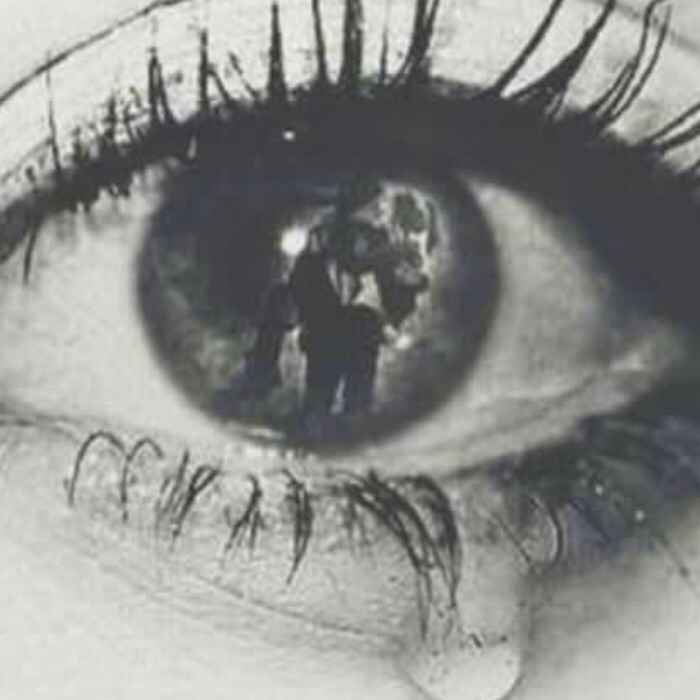
Ivan, age: 27 / 05/02/2016
Hello! Girl, I consider you very strong, not lonely! And judging by your story, a good person! You accepted your parents as they are and your ex-boyfriend too! but you must understand that this is your life and no one has right, even mom, to tell you where to go to work and compare with others. this is your life! your ex-boyfriend is not worthy of you either, take this as a test, now you are young and free! Live and hold on!!
Nelly , age: 21/05/02/2016
Hello, my Good) it’s hard for you, and you went through bitter and offensive events. You wanted the warmth and love of your mother, fatherly care. Look at everything from the other side. They didn’t help you like a brother, because they saw that you were stronger and smarter, they knew that you were a woman and would get married, and a man should become a man. You looked at life from the inside. It was not easy for the parents. You are now young, smart, experienced, have experience in work, and even tried to build relationships))) your parents' life is their choice, and their life. The brother also chooses his own life. You yourself choose how to build your life. Don't answer evil with evil. A man comes to you with a stone, and you come to him with bread. Learn to overcome hate with love. Be glad you're not alone with your baby right now. Be glad that you found out what the guy you lived with is like, and he did not become your husband. Your experience corresponds to your age. What do you want yourself? Start working and reach heights in this. Take it easy. Everything will come in due time. Think! And how do you want a husband, what qualities should he have, and do you match him in character? Start praying and change for the better. When we change inside, our whole life changes)) I hug and God bless you. God's Blessing!
You are now young, smart, experienced, have experience in work, and even tried to build relationships))) your parents' life is their choice, and their life. The brother also chooses his own life. You yourself choose how to build your life. Don't answer evil with evil. A man comes to you with a stone, and you come to him with bread. Learn to overcome hate with love. Be glad you're not alone with your baby right now. Be glad that you found out what the guy you lived with is like, and he did not become your husband. Your experience corresponds to your age. What do you want yourself? Start working and reach heights in this. Take it easy. Everything will come in due time. Think! And how do you want a husband, what qualities should he have, and do you match him in character? Start praying and change for the better. When we change inside, our whole life changes)) I hug and God bless you. God's Blessing!
Tanya, age: 28 / 05/02/2016
Hello. Indeed, by the age of 27 you have experienced a lot. But now there is a lot of experience that can be put into action. Slowly start living your life. Of course, you don’t need to break completely with relatives, but it will be useful to step back from all their squabbles and hassles. Work quietly, rent a separate apartment (if not already), do something interesting in your free time. And let all this rubbish from insults, betrayals, abuse remain in the past. I wish you all the best!
Indeed, by the age of 27 you have experienced a lot. But now there is a lot of experience that can be put into action. Slowly start living your life. Of course, you don’t need to break completely with relatives, but it will be useful to step back from all their squabbles and hassles. Work quietly, rent a separate apartment (if not already), do something interesting in your free time. And let all this rubbish from insults, betrayals, abuse remain in the past. I wish you all the best!
Vyacheslav, Age: 28/03/2016
Previous request for
Come back to the beginning of section
| version for printing |
Content
"I understand you"
"Calm down", "Pull yourself together"
"You must be strong!"
Hold on
Everything will be fine, Everything will be fine, Life goes on gave”, “Now he is with God, he feels good”
“How are you?”
How to help? With indifference
When you think what to say to a person experiencing grief, either banal words or dry phrases usually come to mind, or you don’t know what to say at all.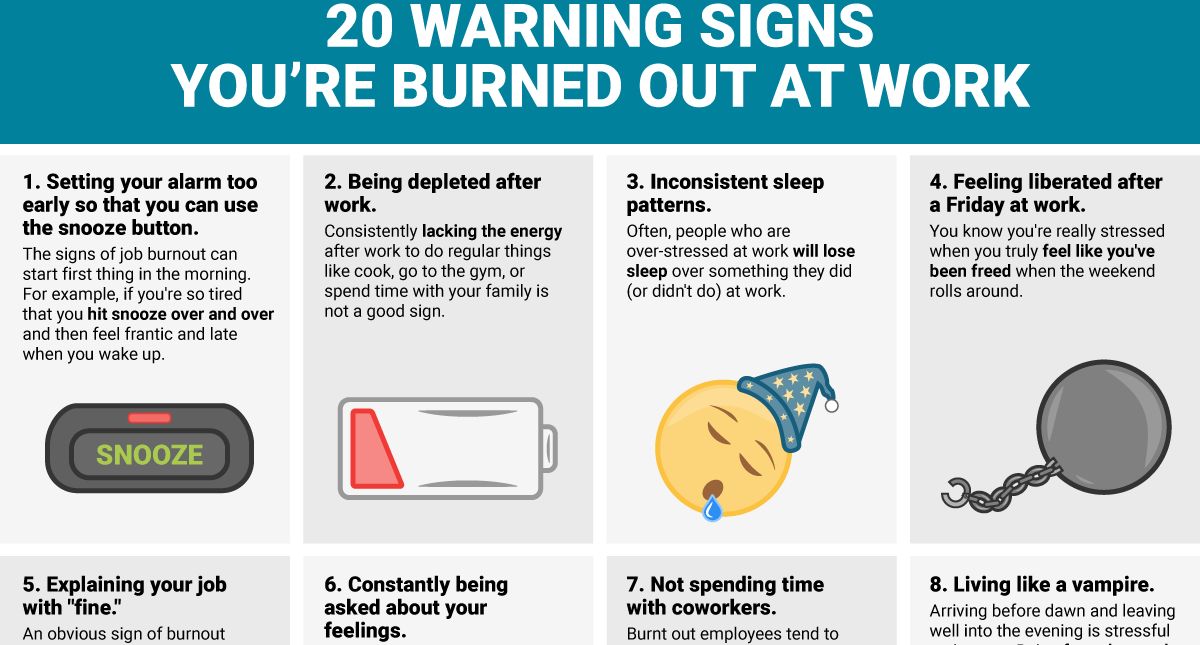 For example, when a person goes to work after the loss of a loved one, colleagues find it important to say: “Condolences,” “I’m sorry,” “I sympathize.” But it’s one thing when it’s said from the heart, by those who really sympathize, it’s another thing when such words are repeated all over the place.
For example, when a person goes to work after the loss of a loved one, colleagues find it important to say: “Condolences,” “I’m sorry,” “I sympathize.” But it’s one thing when it’s said from the heart, by those who really sympathize, it’s another thing when such words are repeated all over the place.
Duty phrases, at best, pass by, but can also offend, anger when they are said just to say, for the sake of form.
This happens not at all because people are stupid, cruel or indifferent, but because they feel embarrassed and consider it their duty to say something, to somehow respond to someone else's grief. I believe that the principle should work here: if the words come from the soul, from the heart, if you want to say - speak. But don't use dry platitudes just to say it. If you don’t know what to say, shut up or tell the truth: “I don’t know what to say to you now. What can I do for you to make you feel better? Do you want me to just sit next to you? We can be silent or talk together. What can I do for you?". Because it happens that people in an attempt to console a grieving person only make it more painful.
What can I do for you?". Because it happens that people in an attempt to console a grieving person only make it more painful.
“I understand you”
Usually the inner reaction to such an attempt to console is: “No, you don't understand!”. Your wounds always hurt more. Even if you had a similar situation in your life, it is yours, you experienced it differently. Grief is always individual.
In addition, when a person experiences his own grief, he does not want to hear about how it was with you. It is important for him to talk about his .
Once we were on the "Hot Line" (“Hotline” of the Center for Emergency Psychological Assistance of the Ministry of Emergency Situations of Russia, which Larisa Pyzhyanova headed from 2007 to 2014 - ed.) A woman called and told how her father, a pilot, died 20 years ago. Once, calling, she got on a young employee. And she began to tell him how hard it was for her, because at that time there was no psychological support, and she was left alone with her grief. And the young guy "on the machine" replied: "Yes, I understand." The woman asked again: “Your father, a pilot, also died 20 years ago?!”
And the young guy "on the machine" replied: "Yes, I understand." The woman asked again: “Your father, a pilot, also died 20 years ago?!”
The words “I understand you” can still be positively perceived when other parents who have lost a child so sympathize with parents who have also lost a child. And you still need to be careful - everyone's situation is different! Someone had a child who was absolutely healthy, successful and died suddenly, as a result of a tragic accident: in one moment, his whole life changed. For others, on the contrary, the child was seriously ill for a long time, they realized that he would die. Which one is harder? Can they understand each other?
Test. Can you comfort someone in grief?
Take the test “Can you console a person in grief?
Pass the test
Therefore, there are no blanks and standard phrases for consolation, some kind of universal training manual: everything is very individual.
“Calm down”, “Pull yourself together”
When a person cries, he has a tantrum, he gets angry, the phrase “Calm down” for him sounds like “You are doing nonsense!”, “Stop feeling that you you feel!" This is a devaluation of his feelings. It must be understood that if he could, he would have calmed down without any "prompts". But his grief, his fear is poured out in this form, these are such strong emotions that he is not able to cope with them.
In fact, hysterics, screams, aggression, tears are nothing more than a request for help: he wants to be heard, understood.
In this case, it is necessary to recognize and describe his feelings in words: “I see that you are angry.” However, sensitivity is also needed here, it is necessary to choose the right words, because if a person who is furious says directly to the forehead: “I see that you are annoyed,” he will simply explode. You need to get into the emotion exactly: “You can’t cope, you want to do something, but you don’t know what. ” Why is it important to say? To make the person feel that you understand him. In fact, all his reactions are about this: “You can’t hear me. Hear me!
” Why is it important to say? To make the person feel that you understand him. In fact, all his reactions are about this: “You can’t hear me. Hear me!
Aggression, rage, hysteria can frighten the very person who shows these emotions. He looks at himself from the outside and thinks: “What am I doing?! I must be crazy."
But in a situation of great grief, crying, crying is normal. We must give him the right to behave like this : “Cry, shout out. You're furious now, let her out. You have a right to it." By giving such “permission” to express feelings, you also remove guilt from a person.
Photo: Priscilla Du Preez / Unsplash
In our culture, it is generally not customary to openly express one's feelings, boys are told from childhood: “Don't cry”, tears are considered weakness. Therefore, men often hold back. When I saw that a man who had lost a child was balancing on the edge - his lips were shaking, he was clenching his fists - I could sit next to him, take his hand and say: “There are times when everyone has the right to cry, even men. Cry, you have the right to do so . But how else - you have a great grief, how could it be otherwise? He cried. And he felt better.
Cry, you have the right to do so . But how else - you have a great grief, how could it be otherwise? He cried. And he felt better.
Experience of grief at work How to help yourself when you have to experience acute grief and at the same time continue to work, fulfill your social functions
Grief causes strong emotions, acute feelings, and this is an absolutely normal reaction. Sometimes giving someone “permission” to cry when they don’t give it to themselves can be a big help.
"You have to be strong!"
In fact, when we say: “Calm down”, “Pull yourself together”, “Be strong”, we show concern not for the person who is in grief, but for ourselves.
It's hard to see other people's strong emotions, we don't know what to do with them, we want it to stop, that's why we say such phrases that have a message behind them: “Don't show me all this horror, your emotions scare me! ".

But sometimes it is important to say to a person like this: “Now you are crying, sobbing, you are in grief, you have a right to it. But it will be very important for us today to do this and that (for example, to draw up documents). You cry, but when you can, let's talk about it."
It happens that one person in the family, as it were, takes away the “monopoly on the mountain” and allows himself to blame everyone, to fight endlessly in hysterics and aggression, not noticing that his family is also very bad. It is important to say: “You are in great grief. But it is also with your husband, and with your children, your parents - they all suffer. You must be together in your common grief."
When else do you want to say to a person: “Pull yourself together, be strong”? When he has apathy, he turned away to the wall and lies like that for days, not reacting to anything. Such manifestations of grief are worse than aggression or crying: apathy suggests that a person has no strength.

Therefore, it is pointless to demand from him that he pull himself together, get ready. You need to take care of him on a physical level: bring him food, drink, feed him, if necessary, give him tea. And then slowly stir him up: smoothly involve him in some kind of activity - offer to take a walk, go to the store, help with the housework. Then the forces will appear.
“Hold on”
Indeed, this very common duty phrase often causes nothing but irritation. “What are you holding on for?!”, “How are you holding on?”.
Society's attitude towards death. From the book “In the Middle of Life” Why, despite the inevitability of death, we try not to talk about it, and how this “conspiracy of silence” affects children who have lost loved ones
But just recently I heard the story of a young woman. She was very upset by the loss of her husband, she cried a lot, yearned. She had an elderly father-in-law, to whom she treated with great warmth. And once I went to him to support, to be near. However, when she arrived, she realized that if she started talking, she would burst into tears. She did not want to cry - she came to support, and not to be consoled.
And once I went to him to support, to be near. However, when she arrived, she realized that if she started talking, she would burst into tears. She did not want to cry - she came to support, and not to be consoled.
It turned out that they just sat silently at the table all evening. We drank tea and were silent. And when she got up to say goodbye and leave, her father-in-law hugged her and said: “Hold on, daughter.” And in these words there was so much love, care and anxiety for her, so much desire to help and at least somehow support, that she later admitted: “It was as if grace descended on me at that moment and I realized that I could survive my grief.” Listening to her, I understood the seemingly obvious - not so much the words are important, but the feelings that stand behind them.
“Everything will be fine”, “Everything will be fine”, “Life goes on”
whatever happened. Naturally, he doesn't want to hear about it. A person in acute grief thinks very differently: "I will be fine only if my loved one is next to me again. "
"
It may be good, but in a different way, and not immediately. First, he will have to learn to live without a loved one who has died. Grief is a process.
During mourning, a person performs a huge inner work, which is to keep the love and memory of the deceased, to go on in life without him. At the beginning of this journey, he does not imagine how good it is, but without a loved one. Therefore, the phrase "Everything will work out" is more likely to provoke an internal protest than to support.
But at the same time, you can tell him: “I know that it’s very hard for you now, but I also know that you can handle it.”
At the moment of acute grief, a person is in an altered state of consciousness, he often does not remember what friends or a psychologist say to him. But you can say these words to him, on which he can then rely: “You are very bad now, there will be moments when it will be even worse, and then better: it will be different.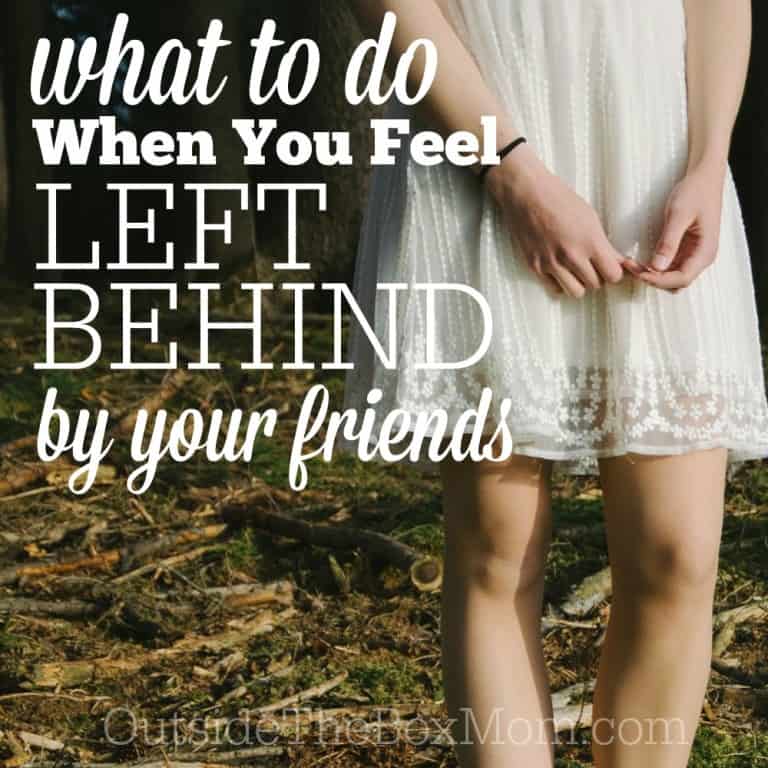 Everything that happens is normal, this is how grief is experienced, and there is no other way. The main thing to remember: you can handle it . You will be able to survive it. Take your time, give yourself time, strength will come, and you will learn to live on.
Everything that happens is normal, this is how grief is experienced, and there is no other way. The main thing to remember: you can handle it . You will be able to survive it. Take your time, give yourself time, strength will come, and you will learn to live on.
Unchildish grief Oncopsychologist Pavel Sapozhnikov on how to talk with a child about the death of parents
This must be said with confidence. Where such confidence? The fact is that a person has internal strengths and resources to cope with almost everything, this is how he is arranged, we know this from many examples. You do not know if he will be all right, but you hope that he has the strength to endure his great grief. You convey your hope to him in the form of the attitude "You can do it, you can do it." And somewhere at the level of his subconscious, this is fixed as a fact: “I can”, and this becomes a support.
“You will still have children”, “You will still give birth to a healthy child”
This is often the way to comfort the parents of a dead child. But we must understand that for them the very thought of another child can be tantamount to the betrayal of a deceased child. In addition, no one knows whether they will have more children, whether they want to have children. It happens that a man consults: “I am so afraid that my wife may go crazy. Can we have another child? I understand that all this is from the best of intentions, but I always answer this way: “You probably had the worst thing that can happen in life - you lost a child. We lost the one you love, who became the meaning of life, with whom so many hopes were associated. And now 9 more0099 his time is the time of your farewell to him, the time when you learn to live without him. Live this time, and then decide whether you will have more children or not.
But we must understand that for them the very thought of another child can be tantamount to the betrayal of a deceased child. In addition, no one knows whether they will have more children, whether they want to have children. It happens that a man consults: “I am so afraid that my wife may go crazy. Can we have another child? I understand that all this is from the best of intentions, but I always answer this way: “You probably had the worst thing that can happen in life - you lost a child. We lost the one you love, who became the meaning of life, with whom so many hopes were associated. And now 9 more0099 his time is the time of your farewell to him, the time when you learn to live without him. Live this time, and then decide whether you will have more children or not.
But in fact, the truth here is also something else: if parents give birth to a child immediately after the loss, then there is a high risk that they can give birth to a substitute child.
This situation is dangerous because parents can unwittingly make the second child responsible for living the life of the deceased: they will compare him out loud or mentally with the first child, correct his behavior. They do this without wanting anything bad, simply, not having fully experienced the loss, they cannot renounce the image of the deceased child and transfer it to the newly born. But a completely different person was born! With its own characteristics, its own character and life tasks. And he may not resemble a dead child in any way. This pain can resonate in the soul of the parents and severe resentment in the soul of the child who is not accepted for who he is.
They do this without wanting anything bad, simply, not having fully experienced the loss, they cannot renounce the image of the deceased child and transfer it to the newly born. But a completely different person was born! With its own characteristics, its own character and life tasks. And he may not resemble a dead child in any way. This pain can resonate in the soul of the parents and severe resentment in the soul of the child who is not accepted for who he is.
If guilt tears the heart apart In all the languages of the universe, so different, we are connected by one dialect - the one that sounds in our hearts as the voice of pain. When we lose loved ones...
Psychologists usually advise not to make vital decisions within a year or two after the loss. You must first survive the grief, and then think about how to build your life further.
“The time has come”
This is how people often talk about the death of elderly people. This may sound arrogant. How can a person so confidently declare for whom it is time to die, and for whom it is not?
This may sound arrogant. How can a person so confidently declare for whom it is time to die, and for whom it is not?
Another point is that for a person experiencing the loss of a beloved grandparent or parent, it doesn't matter how old they were. What difference does it make if it's time or not? He's hurt by the breakup!
When, after the death of my mother, I was filling out the necessary documents, I went into one office, and a woman I knew was sitting there. She said to me so calmly: “Mom died? Well, such is her age, her time has come - and she died. Yes, my mother was 79 years old, a worthy age, God forbid we all live so long. I didn’t answer her, but I thought: “You shouldn’t have said that.” It seems to be a standard phrase, but it doesn't sound good at all. "Her time has come." Maybe so, but it is very difficult for someone who has just lost a loved one to hear this. This phrase cannot console anyone.
“God takes the best”, “God took, God gave”, “Now he is with God, he feels good”
The phrase “God takes the best” is also dubious consolation, it is incomprehensible and illogical. It turns out that those who live long are the worst?
It turns out that those who live long are the worst?
"Now he is with God" - so a believer can say to another believer. But this, rather, is not a consolation, but a statement: they both believe in it. However, the pain of separation from such words still does not decrease: when a person dies, we cry for ourselves, because we are bitter to part.
Photo: Jack Sharp / Unsplash
Saying such words to a non-religious, unchurched person very often means to inflame his wounds. There is a movie called "Rabbit Hole" where parents are shown dealing with the death of a child. They come to a support group, and there one mother says: “I know that my baby is now an angel, he is with God, he is fine. And we are happy! In response, the second mother explodes: “What, God can’t make himself angels?! Why did he want my child?
Such conversations with unchurched people can cause strong aggression. In general, resentment against God often arises at a moment of grief, people may be perplexed: “Why did God take my son (or husband, wife)? I don't need a God like that!"
Therefore, people who truly believe can talk about God among themselves. And, in addition, we must remember that faith is something deeply personal: each of us has our own beliefs, our own life experience and experience of faith, so the same words can respond in people in very different ways.
And, in addition, we must remember that faith is something deeply personal: each of us has our own beliefs, our own life experience and experience of faith, so the same words can respond in people in very different ways.
How are you?
This phrase is rather an attempt to make contact when a person does not know what to say, but it is important for him to start talking to someone who is experiencing a loss. And what to say? "How are you?". You need to understand that the answer to such a question can be anything, and be aware of how you will act further. As a phrase to enter into a dialogue, such words can take place, but they should not be limited.
If a person cares, he can ask differently: “ What can I do for you? . Even if the mourner says, "Nothing," that's fine too.
At some point he needs to be left alone, or he really doesn't know how to help him. If you have specific suggestions, it’s better to voice them: “Let me stay with you”, “Let me come, help you with the housework, cook something”, “Let me take a walk with your children. ”
”
In fact, often a person really does not need anything - just to be around, that's enough. Nothing special to say and no need ...
“Stay with me” — this is the meaning of the hospice The legendary St. Petersburg psychiatrist, MD, honorary doctor of the University of Essex, Andrey Vladimirovich Gnezdilov about work and life in the hospice
It so happened that when my mother died , there were no relatives, no relatives, no friends next to me, they were all in Moscow, and I was a thousand kilometers away. And, of course, despite all my professional and life experience, I experienced fear, grief, and confusion.
I don't know how I would have coped, but, thank God, my friend was there. The closest, the most real, with whom we have been friends for 36 years. She did not say any special words, did not perform heroic deeds, she was simply there all the time - in intensive care, when the doctor said: “We did everything we could . ..”, in the morgue, where it was so unbearably scary to go alone, because there lies your mother, at home, in the cemetery, after the funeral. I don't know how she did it, because the academic year was starting, she was the head of the department at the university, and she had a lot of things to do, and the university was in another city. She left, came and at the same time was always there. I don't know how I would have been without her.
..”, in the morgue, where it was so unbearably scary to go alone, because there lies your mother, at home, in the cemetery, after the funeral. I don't know how she did it, because the academic year was starting, she was the head of the department at the university, and she had a lot of things to do, and the university was in another city. She left, came and at the same time was always there. I don't know how I would have been without her.
Then my relatives arrived and I felt better from their very presence. I decided to stay until 9 days, and my son told me: "I'm staying too." I began to object that he had a university, studies, and he calmly replied: “I will be here as long as you will be.” This cannot be overestimated.
How can I help? Indifference
I have been working with people experiencing acute grief for many years, and still every time before meeting a person I am in some kind of stupor: I don’t know what exactly I will tell him. But when you come into contact with a person, there is an emotional connection between you, and the words come by themselves. For each they will be different. That's why I think it's important to feel the person. And this will not work if you are indifferent to him.
But when you come into contact with a person, there is an emotional connection between you, and the words come by themselves. For each they will be different. That's why I think it's important to feel the person. And this will not work if you are indifferent to him.
We can support a person only when we are emotionally with him, when we care.
There is such an idea that if you are not indifferent to everyone who has grief, you will “burn out”, waste yourself, it will destroy you, so you need to keep your distance. But all my experience says otherwise.
Indifference gives strength: we not only give, we receive.
When you fence yourself off and try to avoid difficult experiences, they still overtake you and “break through”, and this destroys you. At the moment when I communicate with a person, he is the most important person in the world for me. If you approach human grief in this way, the necessary phrases are found, and burnout does not occur.


